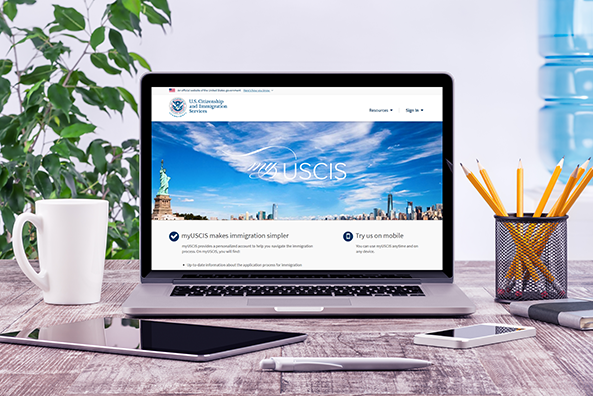The H-1B visa allows American employers to temporarily hire highly skilled foreign professionals (a total of 85,000) in occupations that require specialized knowledge that many say they can’t find here — and the initial registration period for the upcoming fiscal year 2025 H-1B visa cap will open on March 6, 2024, at 9 a.m. PT and run through March 22, 2024, at 9 a.m. PT, the U.S. Citizenship and Immigration Services (USCIS) subtly announced on Thursday, January 30, 2024.
This information was part of a press release in which the USCIS announced its issuance of a final rule that aims to strengthen the integrity of the H-1B registration process and reduce the potential for fraud. Also on January 30, the agency announced another final rule that adjusts certain immigration and naturalization benefit request fees — something that hasn’t been done since 2016.
H-1B Final Rules Explained
The final rule to strengthen security ultimately creates a beneficiary-centric selection process for registrations by employers, codifies start date flexibility for certain petitions subject to the congressionally mandated H-1B cap, and adds more registration-related integrity measures.
Under this new process, “registrations will be selected by unique beneficiary rather than by registration,” the USCIS explains, noting that this “is designed to reduce the potential for fraud and ensure each beneficiary would have the same chance of being selected, regardless of the number of registrations submitted on their behalf by an employer.”
So, starting with the initial registration period that begins March 6, registrants are required to provide for each beneficiary the valid passport information or valid travel document information that the beneficiary, “intends to use to enter the United States if issued an H-1B visa.”
Each beneficiary must only be registered under one passport or travel document, and the USCIS may deny or revoke H-1B petitions in which “the underlying registration contained a false attestation or was otherwise invalid” and deny or revoke approval of an H-1B petition if it “determines that the fee associated with the registration is declined, not reconciled, disputed, or otherwise invalid after submission.”
The USCIS’s Fee Schedule final rule goes into effect April 1, 2024, at which point the H-1B Registration Process Fee jumps from $10 per beneficiary to $215 per beneficiary. Given the rule’s effective date, the fee increase won’t take place until the fiscal year 2026 H-1B cap season, so this season, it’s still $10.
Taking effect just before the current H-1B cap season opens, however, is the final rule announced in December 2023 that increases the filing fees associated with Form I-907 (Request for Premium Processing) effective February 26, 2024. This means that if the USCIS receives a Form I-907 postmarked on or after February 26, 2024, with the incorrect filing fee, the Form I-907 will be rejected and the filing fee returned. For filings sent by commercial courier (such as UPS, FedEx and DHL), the postmark date is the date reflected on the courier receipt.
Organizational Accounts, Online Filing
Also new for the fiscal year 2025 H-1B visa cap is that on February 28, 2024, the USCIS will launch:
- New organizational accounts in the USCIS online H-1B registration system that will allow multiple people within an organization and their legal representatives to collaborate on and prepare H-1B registrations, H-1B petitions and any associated Form I-907.
- Online filing of Form I-129 and associated Form I-907 for non-cap H-1B petitions (remember to include the increased fee).
And on April 1, the USCIS will begin accepting online filing for H-1B cap petitions and associated Forms I-907 for petitioners whose registrations have been selected — what previously was a paper-based process.
During this season’s initial registration period, prospective petitioners and representatives can complete and submit their registrations using the USCIS online H-1B registration system. Employers must have a myUSCIS account; registered users can simply log in, while new users must first create an account.
Jessica Mulholland, Managing Editor, CalChamber
CalChamber members can read more about the overall H-1B Visa process in the HR Library. Not a member? Learn more about how HRCalifornia can help you.
